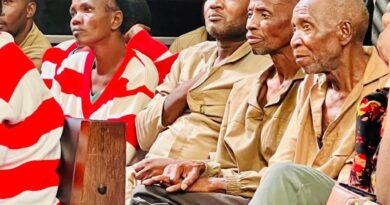Charamba sings praise for Prof Jonathan Moyo
IN an unexpected turn of events, Zimbabwe’s Presidential Spokesperson, George Charamba, took to Twitter to express his admiration for the former Minister of Information and Publicity in Zimbabwe, Professor Jonathan Moyo.
The tweet not only sheds light on the collaborative efforts between Moyo and Namibian President Nangolo Mbumba during their tenure but also carries a unique significance given the tumultuous history between Moyo and the Zimbabwean administration.
Charamba’s tweet recalled the collaborative initiatives between President Nangolo Mbumba and Professor Jonathan Moyo, particularly their joint efforts in launching the weekly bi-national Southern Times. .
The tweet took a stroll down memory lane, acknowledging the days when Mbumba headed the Ministry of Information and Communication Technology. It emphasized the smooth transition of responsibilities to subsequent ministers, including Hon Ndaitwa, SWAPO’s Presidential Candidate in the upcoming elections, and Hon Kaapano.
What makes Charamba’s statement particularly intriguing is that Professor Jonathan Moyo fled Zimbabwe during the military-assisted transition in 2017, marking a contentious period in the country’s political history. Despite the political divergence and Moyo’s self-imposed exile, Charamba’s tweet underscores the recognition of the former minister’s past contributions to the nation.
The unexpected praise for Moyo could signify a potential shift in the political discourse within Zimbabwe, emphasizing the acknowledgment of past achievements despite ideological differences. Charamba’s recognition of the brilliance of the ministerial team, which included Moyo, suggests a willingness to appreciate and reconcile with the past, fostering a more inclusive and united political environment.
As Zimbabwe prepares for future political developments, Charamba’s surprising praise for Professor Jonathan Moyo may introduce a unique dynamic to the political landscape. It prompts a reevaluation of historical narratives and raises the possibility of political reconciliation and collaboration in the future.
Source – Byo24


